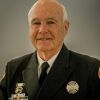I am a stickler for training. Earlier this year, I ended my column by using the adage that we need to train the way we fight.
If your department handles fire, EMS, hazardous materials, rescue including auto extrications, or any of the litanies of other services that could be assigned to the fire service, then you must have a sufficient number of adequately trained personnel to handle your needs and to assist your neighbors.
The growing issue for department budgets whether large or small is how to train firefighters without incurring additional expenses such as travel, lodging and meals.
Other issues include how to have enough certified instructors in the level and types of training needed for both new firefighters or for continuing education, and how to train beyond the basics without incurring the additional cost to backfill a position or pay overtime.
If your state has minimum requirements for certifications, chances are it has an outreach-training program that includes providing certified instructors to teach. However, there is a further problem for volunteers to find the needed training at a time and place that is convenient to their work schedule.
Co-locate training
A possible solution might be to offer certification training in conjunction with another nearby department, and to hold that training on your regular training day. This provides the new firefighter with their necessary training and the veteran firefighters with a great review of the basics.
It can also provide one or more tutors in addition to the instructor to help all the members with the practical skills part of their training. The instructor should also try to build in at least one or two make-up classes in the event a firefighter has a legitimate reason to miss a class.
Another solution may be to offer regional training through a larger department or community college in the area. Again attention has to be given to offer these courses on a mixed schedule throughout a year: some at night, others in the daytime, and if possible on a series of weekends.
This regional concept can also be used by firefighters who have their basic certification, but want advanced-level training.
Bridge class
Bridge classes may be one answer. Where they are allowed, a bridge class assumes the firefighter has a demonstrated proficiency at a lower certification level, and builds on that level up to the next level using both classroom and skills proficiencies.
Prior to starting the advanced class, an individual may be required to take a brief exam or demonstrate a certain skill level to the satisfaction of the lead instructor.
Competency partners
Changing conditions in an area may call for additional training that can be a challenge for even larger combination and career departments. For example, I recently heard of a department that normally has more than adequate fire hydrants in its area that was faced with new homes being built in a non-hydrant area.
The process to extend water lines from that city to the new area was under way, but the builder had begun constructing several homes in advance of the water line connection; each home was worth a considerable amount of money.
That department turned to its neighboring more rural departments for a crash course in pumper and water tender operations that included tender shuttles from the closest hydrants and a pumper draft from a nearby lake. The net result was that all the departments involved combined their experience to overcome a critical shortfall while coming away with a new-found respect for the capabilities of all the departments involved.
The larger department also decided to continue to use their smaller neighbors to augment its responses in critical areas, and in return decided it would provide a closer pumper to their neighbors that could be used for rapid tender refilling. The larger department also invited its neighboring departments to other training opportunities at their training facility.
Safety message
One other suggestion on training that comes from a volunteer firefighter for Prince George’s County, Md. At PG each morning a daily safety message is broadcast by their dispatch center.
The safety message may be a reminder for all personnel to thoroughly check their PPE for signs of wear and report it to their equipment officer, or to inspect the SCBA and facepiece assigned at their apparatus running position.
It’s critical in today’s fire service to develop new partnerships and to think outside the box, especially when it comes to delivering the training we need to be proficient with our duties. Don’t overlook a potential partnership only because it’s never been done before.
You may be surprised that some capability or talent your department has may be of value to a neighbor who in return may be able to help you.
Joint training also provides the basis for developing standard operating procedures, common radio frequencies, and a unified command structure among responding departments. All of these are critical for a department to pass the real “final exam” — the successful outcome in mitigating an emergency without injuries or an unforeseen incident.












